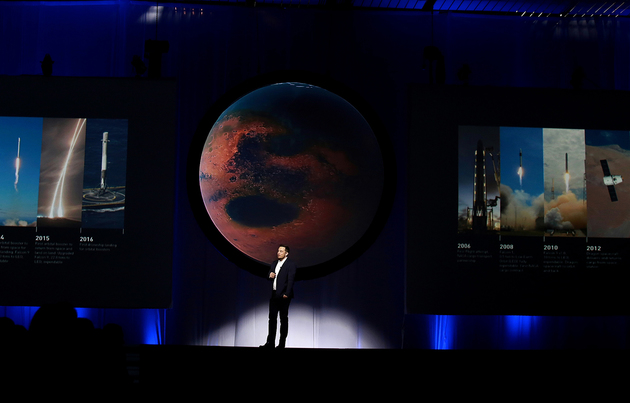
File Photo/VCG
1. Amazon signs Falcon 9 deal with SpaceX to launch Kuiper satellites
Amazon has signed a deal with SpaceX to launch three Falcon 9 rockets to support its Project Kuiper satellite broadband network. Kuiper is a low-Earth orbit satellite network that can accommodate multiple launch providers and vehicles. Amazon announced the project in 2019, the same year SpaceX began deploying its first operational Starlink spacecraft.
Commentary: Amazon's partnership with SpaceX is a strategic move that allows Amazon to leverage SpaceX's launch capabilities and experience while also reducing its own costs and risks.
2. Musk: Subscribe to X Premium+ to get AI model Grok
Elon Musk retweeted a post by an engineer at his X company (formerly Twitter) that said, "Want to see fewer ads? Become a Premium+ user." Musk said that Premium+ subscribers will not see ads on their timelines and will also have access to Tesla's Grok AI chatbot.
Commentary: By offering a Premium+ subscription, Musk can both increase X company's revenue and attract more users to experience the features of Grok AI, thus boosting X company's influence and competitiveness.
3. Japanese study reveals a breast cancer treatment mechanism
Researchers from Kyoto University and other institutions recently published a paper in the journal Communications Biology that found that two drugs commonly used to treat breast cancer, Adriamycin and Abexicil, can induce senescence in breast cancer cells. A protein called ATP6AP2 plays a key role in this process.
The study found that this protein helps to maintain the acidity of the cell. In cancer cells treated with the drugs, the concentration of ATP6AP2 decreases, causing the cells to become acidic and leading to senescence, which helps to control cancer.
Commentary: Breast cancer is one of the most common cancers in women, with about 270 million people diagnosed with it each year. This discovery provides new clues for further research on drug optimization and personalization, and also brings new hope to breast cancer patients.
4. Google pushes for antitrust action against Microsoft in UK cloud market
Google has called on UK antitrust regulators to take action against Microsoft. Google and Microsoft, due to their dominant position in the cloud computing industry, are facing increasing scrutiny around the world, with regulators in the UK, the European Union, and the United States investigating their market power. In a letter to the UK Competition and Markets Authority, Google said that Microsoft's licensing practices unfairly impede customers from using competing services.
Commentary: By pushing for antitrust action against Microsoft in the UK cloud market, Google hopes to use the UK's antitrust regulators to force Microsoft to change its licensing practices, thus improving its own position and competitiveness in the cloud computing market.
5. Largest whole genome sequencing data released
On November 30, the UK Biobank released the largest whole genome sequencing data set in the world. Rory Collins, chief investigator of the UK Biobank, said that this is a true treasure trove for scientists working in health research, and that it could bring about transformation in diagnosis, treatment, and cure of diseases globally.
Genomic sequencing is a new type of genetic testing technology that can analyze and determine the entire gene sequence from blood or saliva. It can predict the possibility of suffering from a variety of diseases, individual behavioral characteristics and behavioral rationality, and help to lock in individual mutant genes for early prevention and treatment.
Commentary: This is a landmark technological achievement that will provide unprecedented resources and opportunities for human health and medical research. The development and popularization of genomic sequencing technology will accelerate innovation and competition in the biotechnology and pharmaceutical industries, and promote the development of personalized medicine and precision treatment.
6. Scientists discover unexpected behavior in active particles
A new study explores the behavior of active particles whose propulsion speed varies with direction. Scientists found that these particles form non-circular particle clusters with a continuous flow of particles entering and exiting. This study is significant for the potential control of particle assembly, and also has implications for the advancement of programmable materials and medical technologies.
Commentary: This is a study that reveals the novel and complex behavior of active particles. The study opens up new possibilities for the use of active particles to create programmable materials and medical technologies.
Disclaimer: The content and data of this article are for reference only and do not constitute investment advice.


 川公网安备 51019002001991号
川公网安备 51019002001991号





